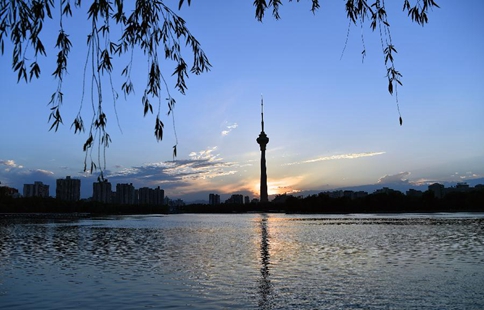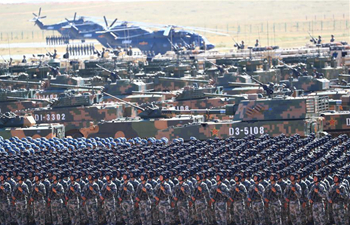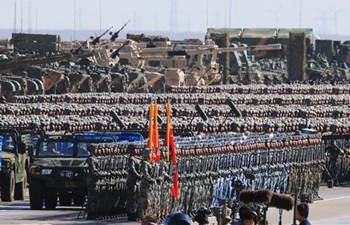
Chinese Foreign Minister Wang Yi (R) meets with U.S. Secretary of State Rex Tillerson on the sidelines of a series of ASEAN foreign ministers' meetings in Manila, the Philippines, Aug. 6, 2017. (Xinhua/Rouelle Umali)
MANILA, Aug. 7 (Xinhua) -- Chinese Foreign Minister Wang Yi on Monday called on the Democratic People's Republic of Korea (DPRK) to make a response to the guarantees of U.S. Secretary of State Rex Tillerson.
Wang is attending a series of meetings of the ministers with the Association of Southeast Asian Nations (ASEAN), which are being held in the Philippine capital city of Manila.
Wang said China fully appreciated the remarks that Tillerson made on Aug. 1 and regarded the remarks as a positive signal.
At a press conference on Aug. 1, Tillerson made four guarantees, including that the United States seeks neither a regime change nor collapse of the regime in the DPRK and the United States seeks neither an accelerated reunification of the peninsula nor an excuse to send the U.S. military north of the 38th Parallel.
Wang said that China has shown its opposition, along with the international society, to the DPRK's constant missile launch activities in violation of UN Security Council resolutions, so it consulted with other members of the UN Security Council and voted for Resolution 2371.
Given China's traditional economic links with the DPRK, it is China that will mainly pay the price for the implementation of Resolution 2371, Wang said.
However, China will continue to fully and strictly implement all the contents of the resolution to safeguard the international nuclear non-proliferation regime and maintain regional peace and stability, he said.
Wang said "we can certainly air our views, but meanwhile, we also could listen to the DPRK's opinions. I think it's fair and helpful."
Wang cautioned against the expectation of reaching an agreement at one stroke, adding that talks are better than isolation and exchanges are better than confrontation.
"Our stand is clear. That is to realize denuclearization in the Korean Peninsula, safeguard peace and stability and solve problems through dialogue and negotiations," Wang said.
Wang further explained that the core of the Korean Peninsula nuclear issue is the issue of security.
"The International community urges the DPRK to give up its nuclear and missile programs, while the DPRK hopes to ease outside military pressure. That's why the nature of the nuclear issue is not economy but security, " Wang said.
Wang said there are two major components in the resolution - one is sanctions and the other is to call for the resumption of the six-party talks.
China hopes that all parties concerned could earnestly take into account and accept China's "double suspension" proposal which requires the DPRK to suspend its missile and nuclear activities in exchange for the suspension of large-scale U.S.-South Korean military drills.
China hopes the "double suspension" proposal could get understanding and support from relevant parties.















